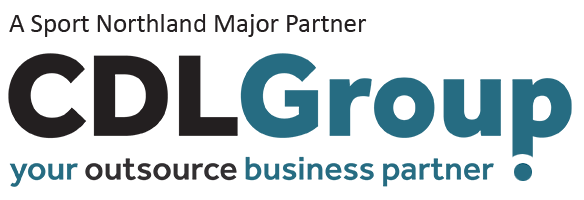
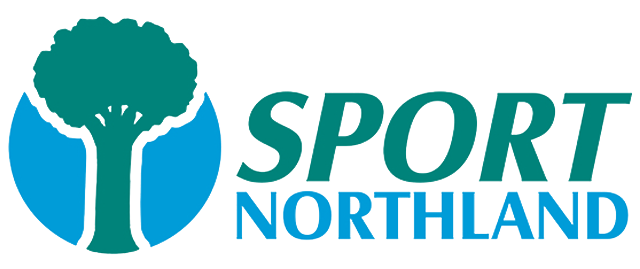
Meri Kirihimete! Sport Northland closes on 19 December 2025 and re-opens on 5 January 2026 - please email info@sportnorth.co.nz and we will get back to you on our return 🎄🏝️
GOOD SPORTS
Focusing on development for tamariki and rangatahi in sport
What is Good Sports?
In alignment with Balance is Better, Good Sports is a culture change initiative developed by Aktive Auckland, which focuses on improving sideline behaviours and recognising the impact that parents, caregivers, coaches, teachers and sport leaders have on tamariki and rangatahi sporting experiences. With participation in youth sports declining, initiatives such as Good Sports and Balance is Better have been implemented to put the youth's perspective at the forefront of youth sports.
Good Sports focuses on raising adults’ awareness about their behaviours in youth sport and promoting a positive shift in that behaviour where necessary. This creates a more positive environment for all involved; where referees aren’t abused, children can have fun, and parents can enjoy seeing their tamariki play while socialising with other parents, instead of obsessing over the score.
What is the purpose of Good Sports?
The aim is to create positive experiences for children in sport, so they are more likely to stay involved and develop a love of physical activity for life. Negative reinforcement only reduces the chance that children will want to continue to participate in sport and recreation, and most often adults are the facilitators of these attitudes, putting too much pressure on rangatahi to be the best at a young age. Basing conversations around development rather than performance allows children to develop a growth mindset, focusing on small wins such as learning a new skill or improving their movement abilities. As a result, rangatahi are less likely to experience an overuse injury, burnout or disaffection with sport.
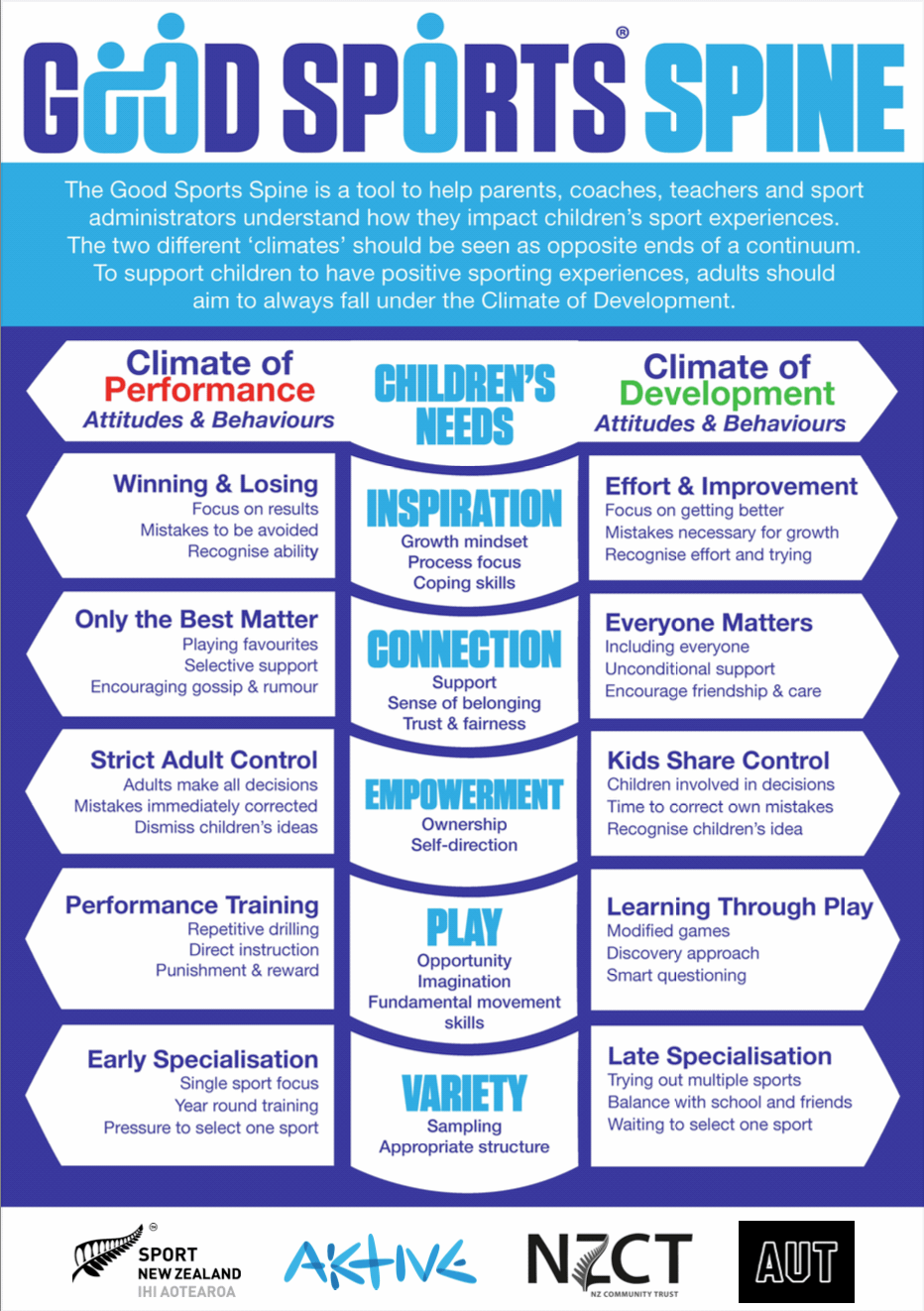
Free online Good Sports courses are available. We encourage all adult influencers involved in youth sport to learn more at the link below.
What can you do to help?
As a parent, it’s important to recognise that ‘fun’ in sport is different for every child. There are many aspects to play, active recreation and sport which tamariki and rangatahi enjoy – whether this involves seeing improvement, socialising, being a good sport, positive coaching, running, playing, laughing, being a leader, team rituals, trying hard, etc. Observing their behaviour and learning what is most important to them will help you understand their motivation to participate, and how you can best support them to do so.
In turn, you will feel equipped to support your child through the emotional learnings which occur in sport. Processing emotions like jubilation, disappointment, anger and stress are difficult at a young age, so it’s helpful having parents there to guide them through learning to respond constructively. Most importantly, teaching your child not only to celebrate outcomes and placing more emphasis on attitude and effort. Encourage reflection; what they improved, what they learnt, how it felt, etc. Listen to what they have to say! Youth prefer support without pressure, which means parents should avoid providing technical or tactical advice. Think about focussing on the ‘Climate of Development’ in the Good Sports Spine, and veering away from the ‘Climate of Performance’.
"I saw how hard you worked out there!"
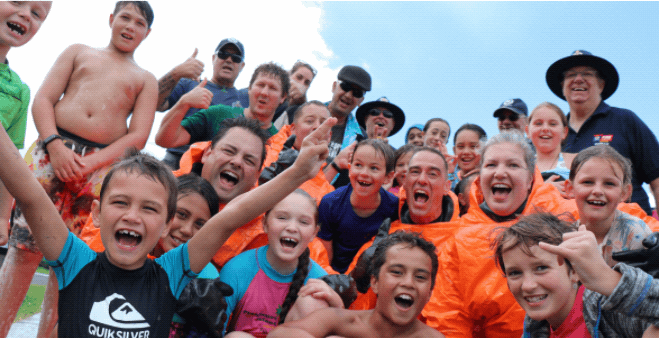
Be a role model!
One of the most important factors is sideline behaviour – the way parents act on the sideline of a game has a huge impact on tamariki and rangatahi, on and off the field. Becoming too emotionally invested in your child winning creates the same standard for them, and parents who yell from the sidelines distract the players from enjoying themselves and trying their best. It increases the pressure on players to never make mistakes, causing them to feel like giving up when they do. Youth sport is about learning from mistakes, using small failures as an opportunity to assess and improve for next time – in turn, the joy they receive from developing these skills and becoming a better player will also develop their love for sport.
Remember: “I’m proud of you, and I love watching you play”. No matter the outcome.
As a sports club or organisation, it’s important to help parents and coaches become more educated in creating a healthy sport experience and positive environment for children to learn and grow. Providing online resources, workshops, and meetings can help develop skills, competency and understanding of Good Sports.
Being proactive and providing the tools to help parents and coaches will result in higher participation, less drop-out, and a lower risk of injury and burnout. In the long term, these children will mature into adults maintaining a lifelong love for play, active recreation and sport, and those who remain in competitive sports will have a much higher chance of succeeding in their chosen sport.
For coaches, providing a fair, supportive, inclusive environment for children of all skill levels within a team is important to ensure a positive experience for all. Encourage tamariki and rangatahi to adopt a growth mindset, instilling the belief that hard work and dedication will lead to improvement.
If you want to learn more about how you can implement Good Sports in your club or organisation, please contact:
Ellie Eastwood, Regional System Connector, Sport Northland elliee@sportnorth.co.nz
SPORT NORTHLAND
CDL Group Northland Sports House
97 Western Hills Drive, Kensington,
Whangārei 0112
info@sportnorth.co.nz
CDL Group Northland Sports House - 09 437 9600
McKay Stadium / Kensington Fitness - 09 437 4404





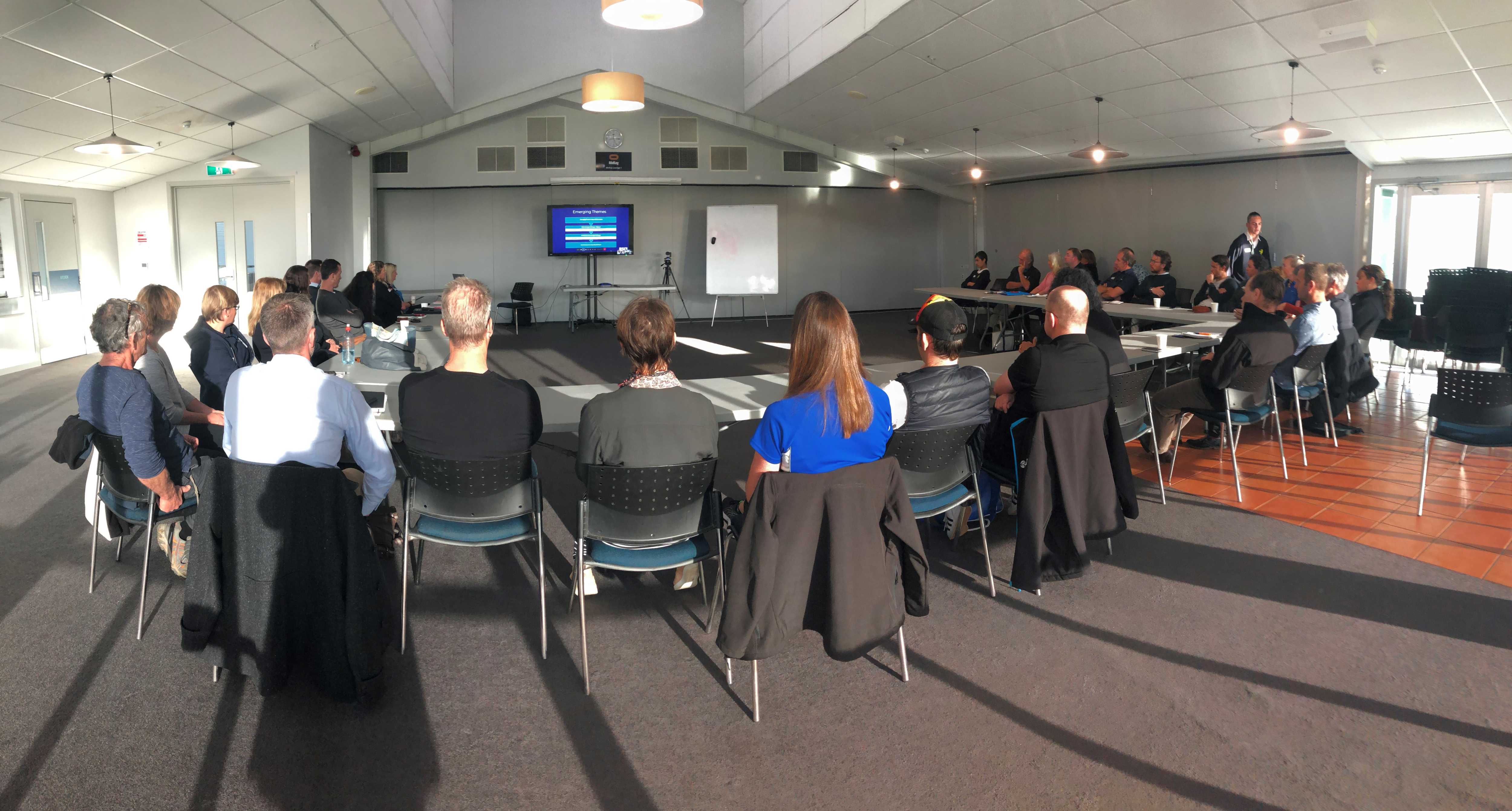
 Members
Members Admin Login
Admin Login